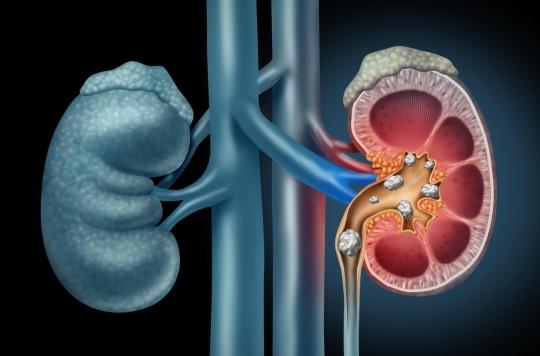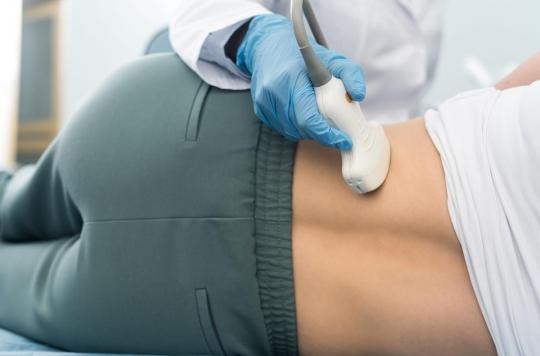
How do you keep your kidneys healthy?
Our kidneys clean our blood. But they do much more. The older you get, the less well they can perform their duties. What can you do to keep them healthy? Margriet de Jong, internist-nephrologist at the Groningen UMCG, answers.
1. First things first: what exactly do your kidneys do?
“People often ask, ‘Doctor, what’s my kidney function?’ Actually, kidneys do not have one function, but many functions. The main task is to filter waste products from the blood. If you are healthy, you get rid of them via
lost the urine. If the filtering does not work properly and too many waste products remain in the body, there is kidney damage, also known as impaired kidney function.”
2. What other functions do the kidneys have?
“Kidneys convert vitamin D – from sunlight and food – into active vitamin D. This is necessary for strong bones. The kidneys also keep the amount of water and salt in the body in balance. If the kidneys are damaged, this is less successful and blood pressure rises. The kidneys also stimulate the production of red blood cells. If your kidneys do not work properly, anemia can develop.”
3. The ‘cleaning function’ of the kidneys diminishes with age. What’s up with that?
“Even if you are completely healthy, kidney function decreases by about 0.4 percent annually from the age of 40. We call a kidney function of 90 percent normal to high. If you are around 60 years old and your kidney function is still 70 to 75 percent, then in principle you don’t have to worry about your kidneys. Nevertheless, chronic kidney damage can occur as a result of aging. We speak of this if the function – regardless of age – is below 60 percent. – this is the case in addition to aging, diabetes an important risk factor for kidney damage. High blood pressure also increases the risk, as does an unhealthy lifestyle.”
4. It is sometimes said that painkillers are bad for your kidneys.
“You can always safely use paracetamol in the recommended amount. With ibuprofen, naproxen and diclofenac, you have to be careful if you have kidney disease. These drugs are so-called NSAIDs. They can, for example, cause you to retain fluid. high blood pressure. That is why we are very careful with kidney patients. That does not mean that you should absolutely never use them. Young women who have had a kidney transplant and whose kidney function is normal can take ibuprofen once in severe menstrual pain, for example.”
5. Do you notice when your kidneys are not working properly?
“That differs per person. One has a kidney function of 10 percent and feels good. The other has many complaints with a function of 60 percent. In general, with a kidney function below 30 percent you suffer from symptoms. a wide range of complaints that can indicate damage to the kidneys: fatigue, itching, coldness, inability to sweat or loss of taste.”
6. How does a doctor determine if you have kidney damage?
“A blood test gives an indication. It is then checked how much creatinine is in the blood. This is a waste product of the muscles. An increased value can indicate that the filtering – or the removal of waste from your body – is not going well. But one test does not say everything. There may be a little more creatinine in the blood temporarily, for example if you have fallen. If the result is abnormal, another test is done, sometimes several over a certain period. If the creatinine value in the blood remains too high, then there may be chronic kidney damage. To be able to determine this, the urine must also be examined for the presence of protein and red blood cells. Those values are also often abnormal with kidney damage.”
7. How is renal function then calculated?
“We can estimate this with a special calculation formula. This includes the creatinine value, but also your gender, age and your race. For example, men naturally have more creatinine in the blood than women. For convenience, we often express kidney function in percentages. , but in fact it is about milliliters. If the kidney function is 90 percent, then the kidneys remove 90 milliliters of blood of waste products per minute. That is a nice value. If the value is around 40 percent, then there is a moderate to severe decrease kidney function.”
8. If you have chronic kidney damage, can you slow down the deterioration process?
“Yes, you can do that with medication. But your lifestyle is also very important. In fact, everyone who wants healthy kidneys should keep an eye on his or her lifestyle: avoid being overweight, don’t smoke, exercise regularly, be frugal with alcohol and eat not too much salt. Everything you should or should not do to prevent cardiovascular disease, also applies to kidney damage. As for salt: remember that this is in many products in which you do not expect it. most people do, but yogurt, cottage cheese and ice cream can also be salt bombs, and there are many more foods like that. I once had a patient who peed out a lot of salt, but at high and low claimed to hardly eat it. we found out that he always used stock cubes when cooking.”
9. Can you view chronic kidney damage as a lifestyle disease?
“Like the heart and brain, kidneys have blood vessels. If they are sick because they are overloaded by, for example, eating a lot and fat, then the organ itself can also become sick. The kidneys just stop working less acutely than a heart. But the consequences can be just as impressive as with a heart attack, often even more intense, I think. Formulated a bit in black and white: if you get good treatment after a heart attack, then you can manage with three pills a day. kidney failure you may have to dialyze for four hours three times a week and you also have to take 30 pills a day. People often don’t realize what serious kidney damage can mean.”
10. What can the doctor do if you have kidney failure?
“This is the case if the kidney function is below 20 percent. A so-called kidney replacement therapy is then required: the task of the kidneys is taken over by, for example, a dialysis machine or by a new kidney. At the renal failure clinic we look with the patient and different care providers what the best option is. A nephrologist, a social worker, dietician and a specialized nurse are involved in this. Kidney transplantation is becoming more common. Sometimes relatives or partners want to donate a kidney. It is important that the donor I have seen a 70-year-old man donate his kidney to his wife. His own kidney function was around 65. Normally that is not a problem at his age, but giving half away is not wise. should be able to live to 80.”
This article appeared in the magazine Plus Magazine January 2020. Want to subscribe to Plus Magazine? Becoming a subscriber is done in no time!















